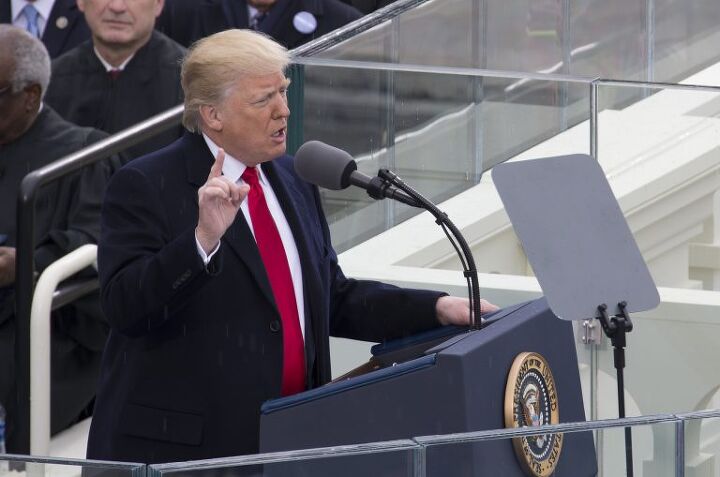#roadways
White House At Least Considering Increasing Gas Tax, Needs to Consult Congress
The United States’ 18.4-cent-per-gallon tax on gasoline and 24.4-cent tax on diesel hasn’t changed since 1993. Despite this, the opinion that it should be hiked as a way of funding public works was nowhere near the White House’s official infrastructure strategy. But Donald Trump isn’t averse to the idea. In fact, he proposed a 25-cent increase to senators during a Wednesday meeting as a possible funding solution.
White House officials claim the president says “everything is on the table” in terms of finding a solution for America’s growing infrastructure problems. But how serious the rest of the Trump administration is about raising the fuel tax is debatable.
Here Come the Roads: President 'Big Daddy' Trump Unveils Infrastructure Plan
Few things are sexier than a new road. The scent of fresh tar, smooth pavement that’s still warm to the touch — it’s an absolute feast for the senses. After roughly a year of waiting, President Trump finally seems poised to deliver on a bunch of them. The White House has just offered Congress a 53-page report detailing exactly how to rattle loose $1.5 trillion in investments into the country’s ailing infrastructure.
Maybe “poised” is the wrong word to use; how about we just say that he’s been interested in the idea that somebody should build them.
Expect Democrats to complain that the plan totally fails to create a dedicated funding stream to address the infrastructure issue and Republicans to gripe about how the small federal investment, set at $200 billion, is still far too large. It’s a beautiful system we have here.
Trump Flips Script on Who's Paying to Fix Our Crumbling Infrastructure
Last week, I defended the president’s honor and lamented that I probably wouldn’t have a follow-up opportunity for some time. As it turns out, that claim is in no danger of becoming a falsehood. On Tuesday, President Trump told lawmakers he was ditching a key aspect of his planned $1 trillion infrastructure package — namely, who is going to pay for it.
Spoiler alert: its going to be taxpayers.
The White House previously envisioned a strategy where private investors would be lured into rebuilding roadways, bridges, and rail networks with promises of federal backing and a less-daunting approvals process. But now it’s saying partnerships between the private sector and federal government might not work.
England Studying "Charge As You Drive" Inductive Charging Roads
The British government is continuing on with a study of inductive charging on England’s busy A roads a reality, reports the BBC (via Gizmodo).
Feasibility of the technology hasn’t been fully proven as of yet, but England is getting one step closer by tendering bids for off-road trials. If off-road trials are successful, you might be able to drive long distances across the UK without needing to stop to recharge. The trials are expected to take 18 months from 2016 to 2017.
Elon, you might soon lose your killer app.
The Future of Roads May Be in Lego-type Construction
Dutch company VolkerWessels is proposing a new type of roadway construction that could make it easier to remove, replace or resurface streets in the near future, Gizmodo is reporting.
The engineering firm is working with the City of Rotterdam to test its early concept. The streets are prefabricated and dropped into place. The roadways use a below-surface tunnel to house infrastructure like water, cables and utilities.



















Recent Comments